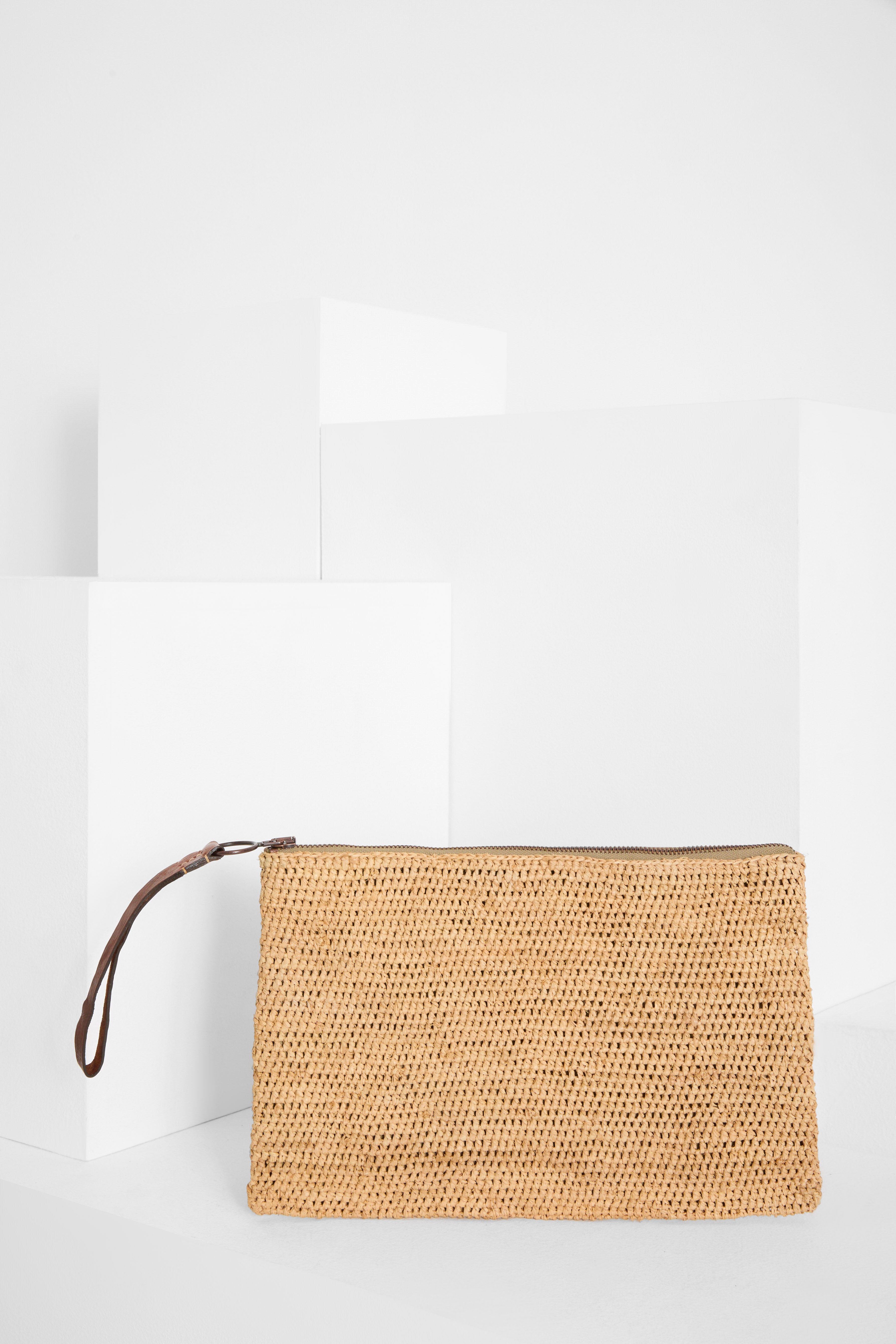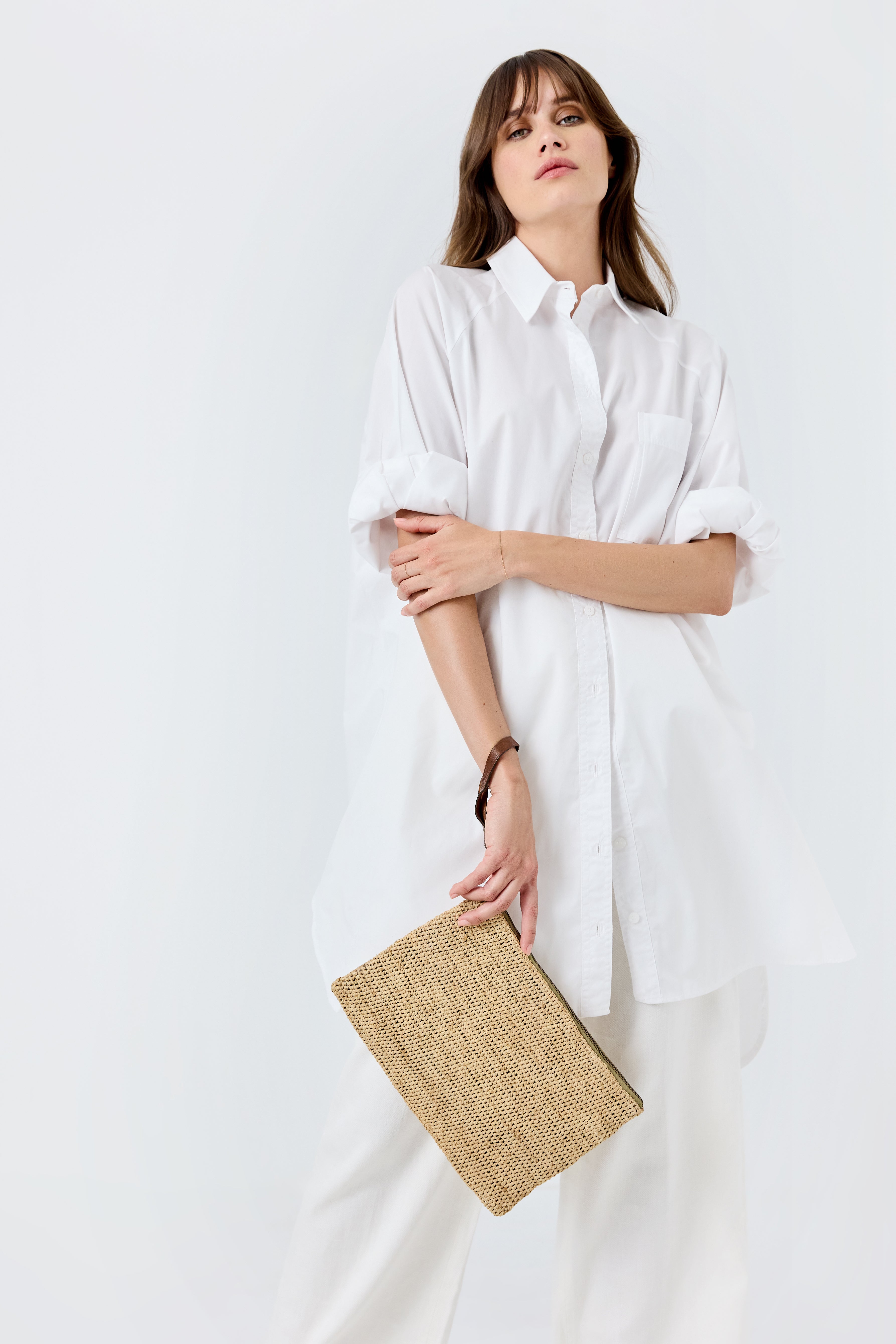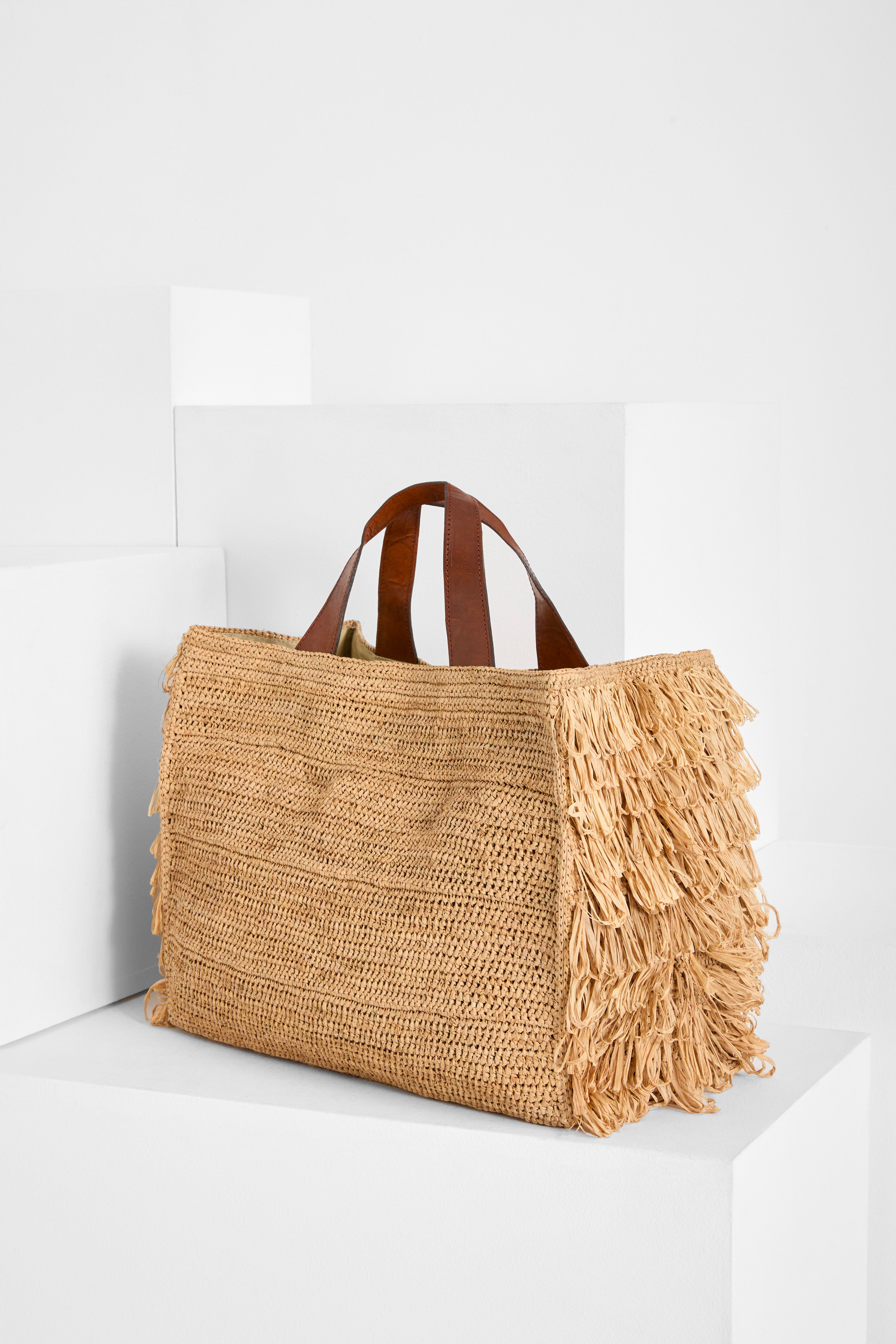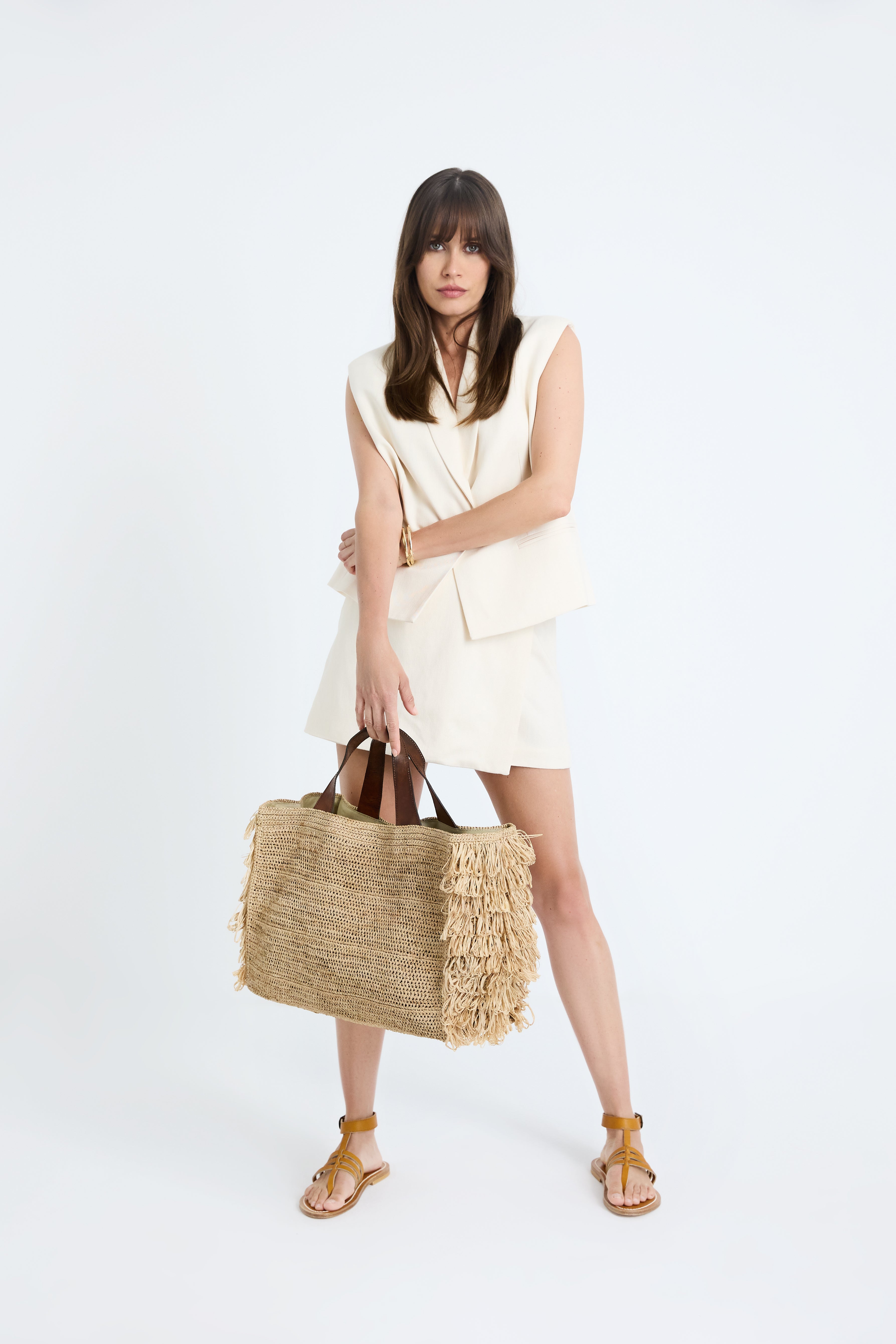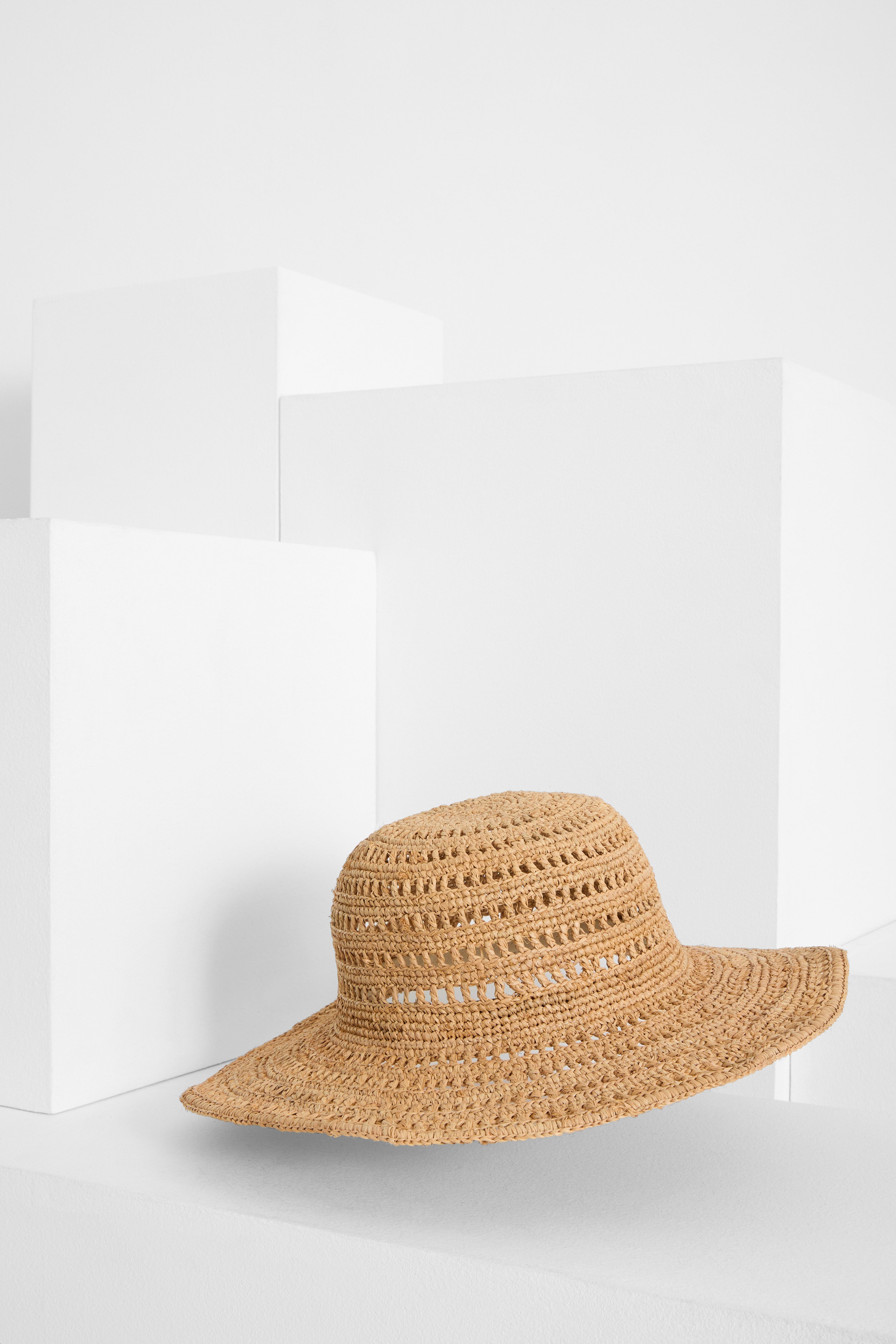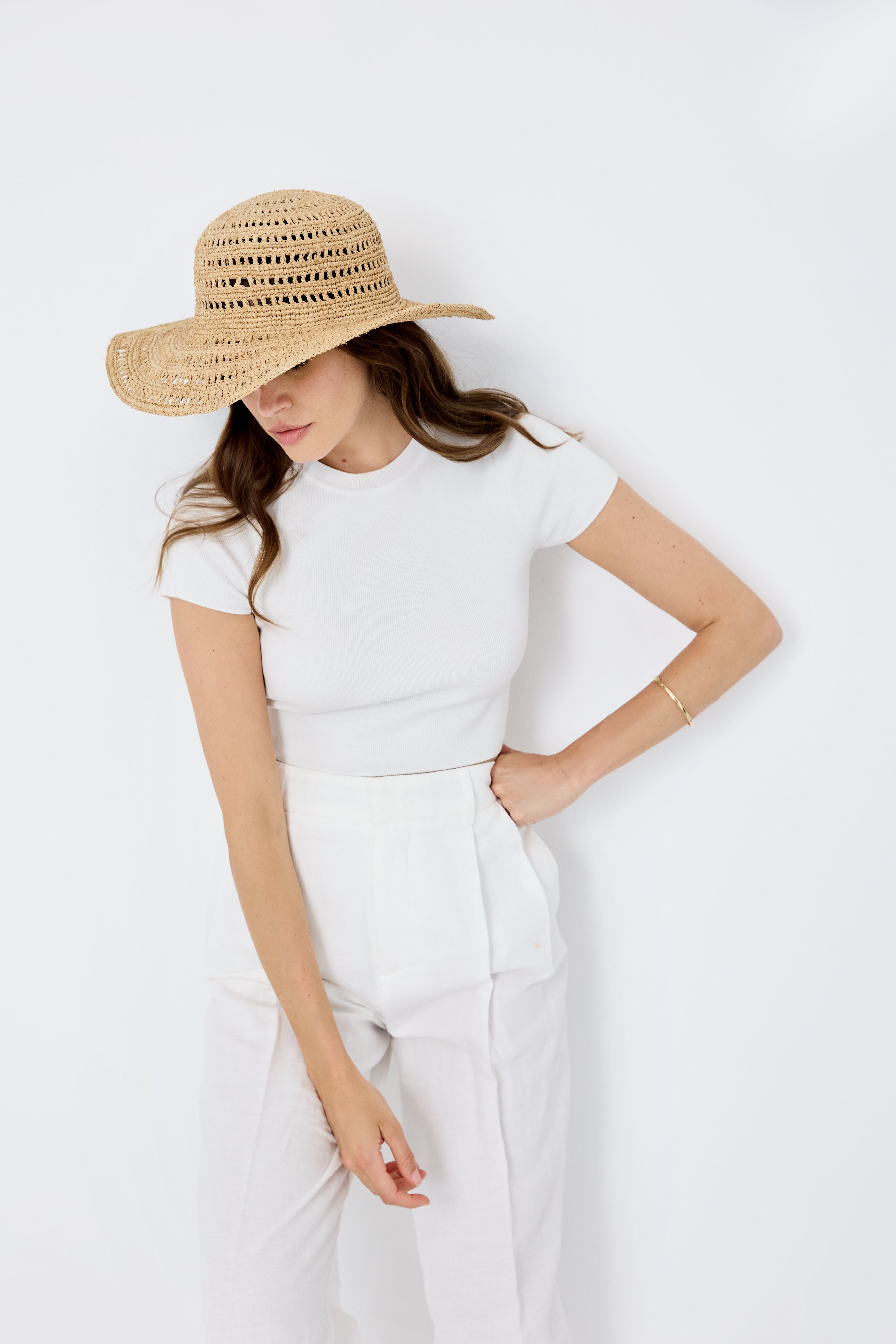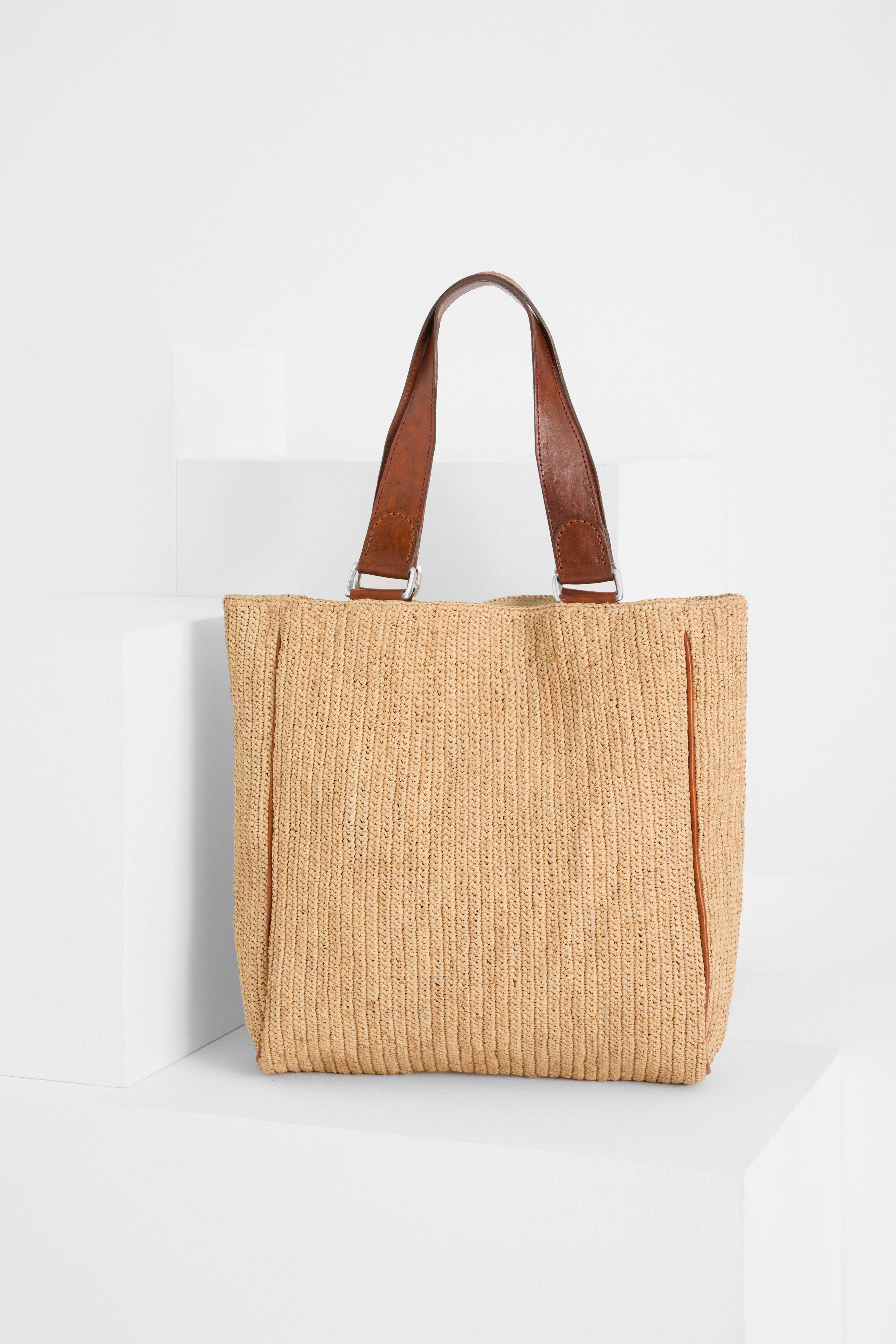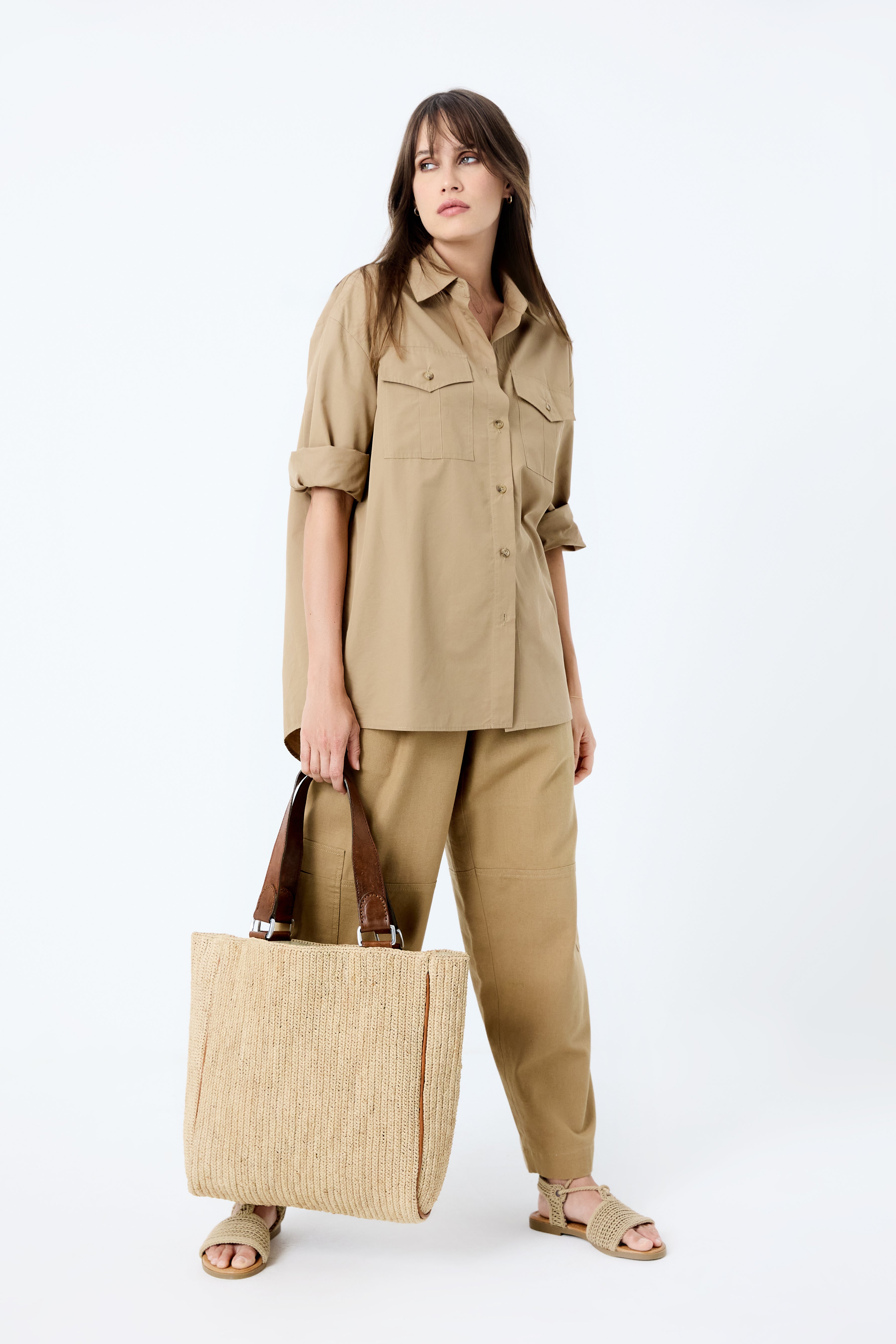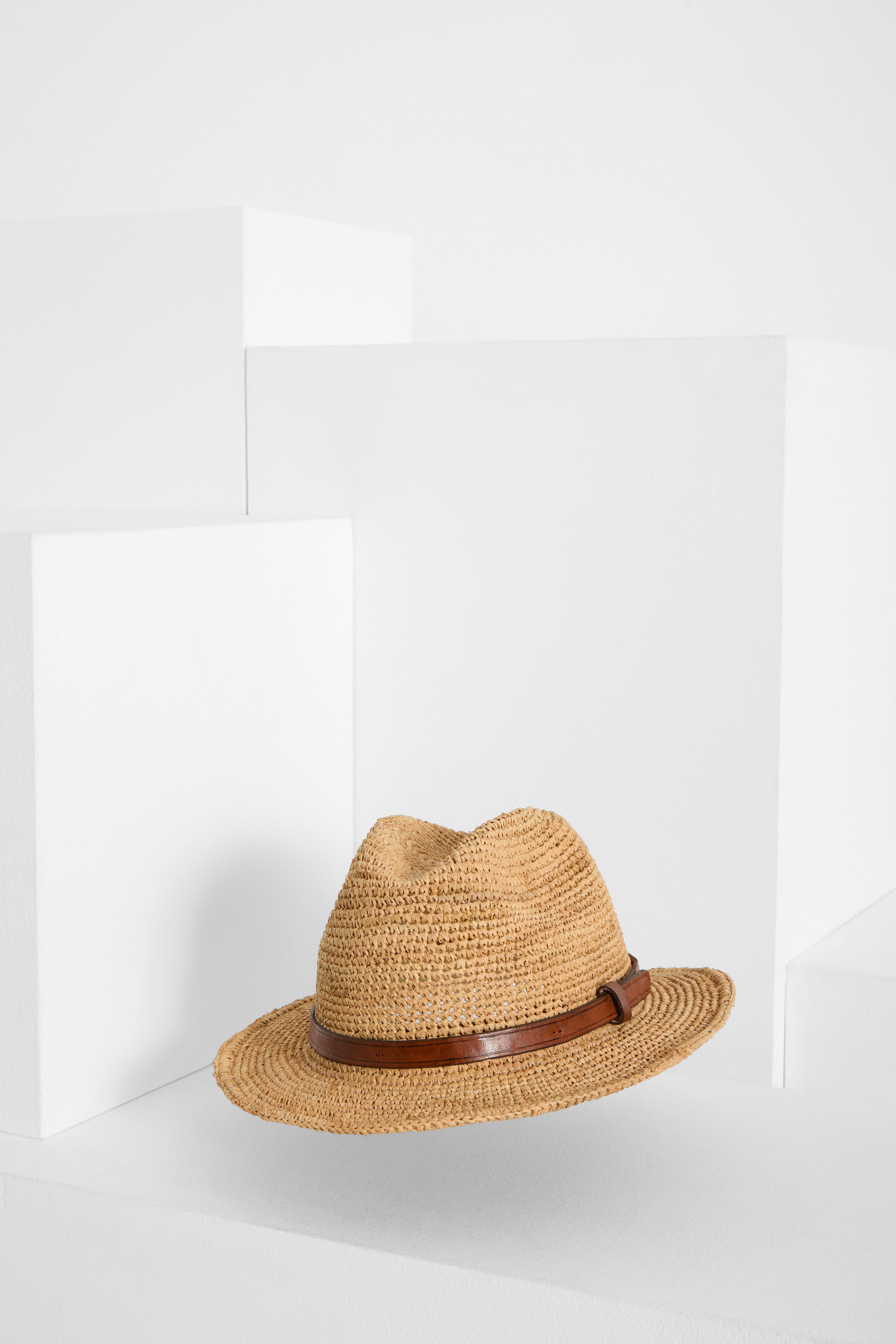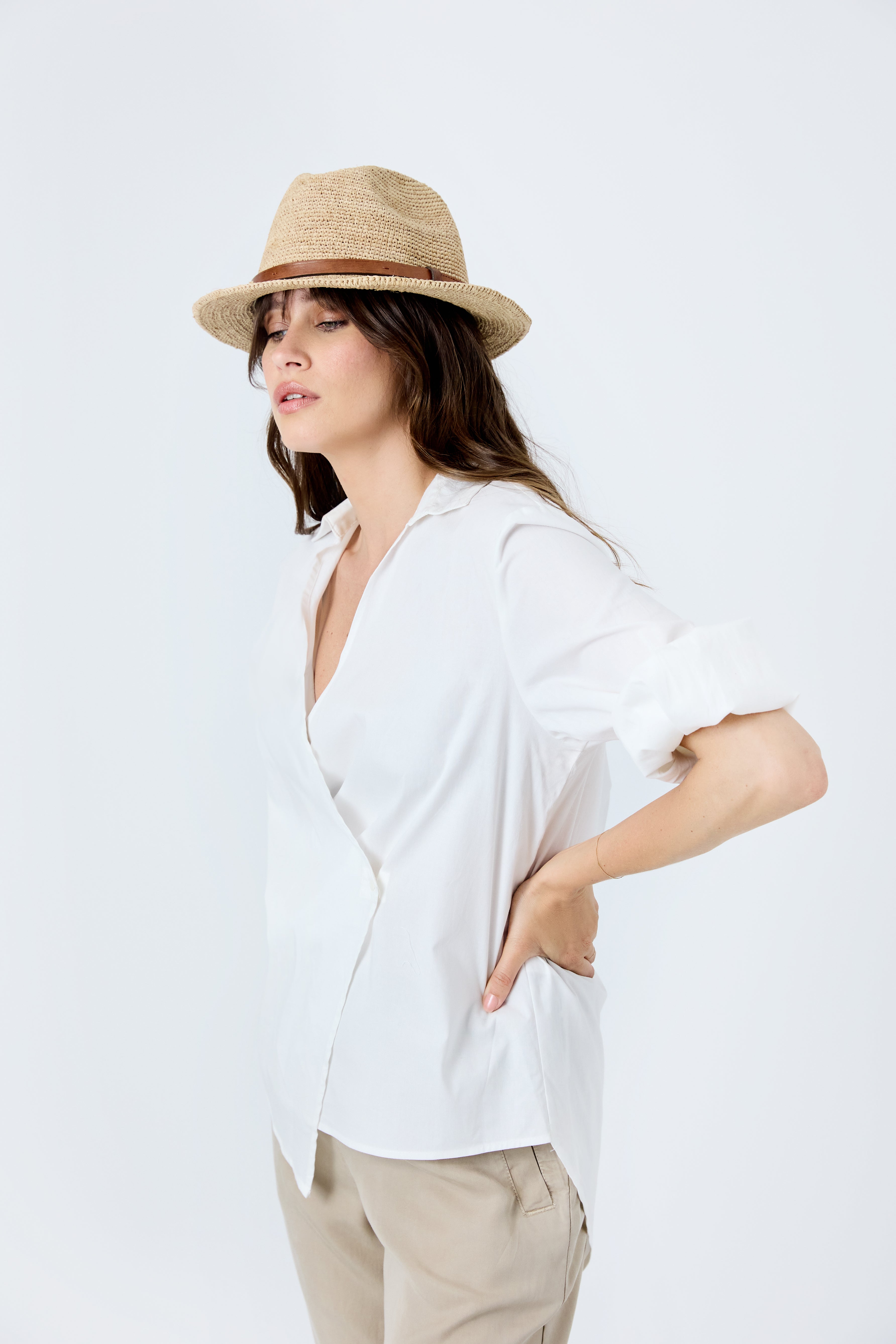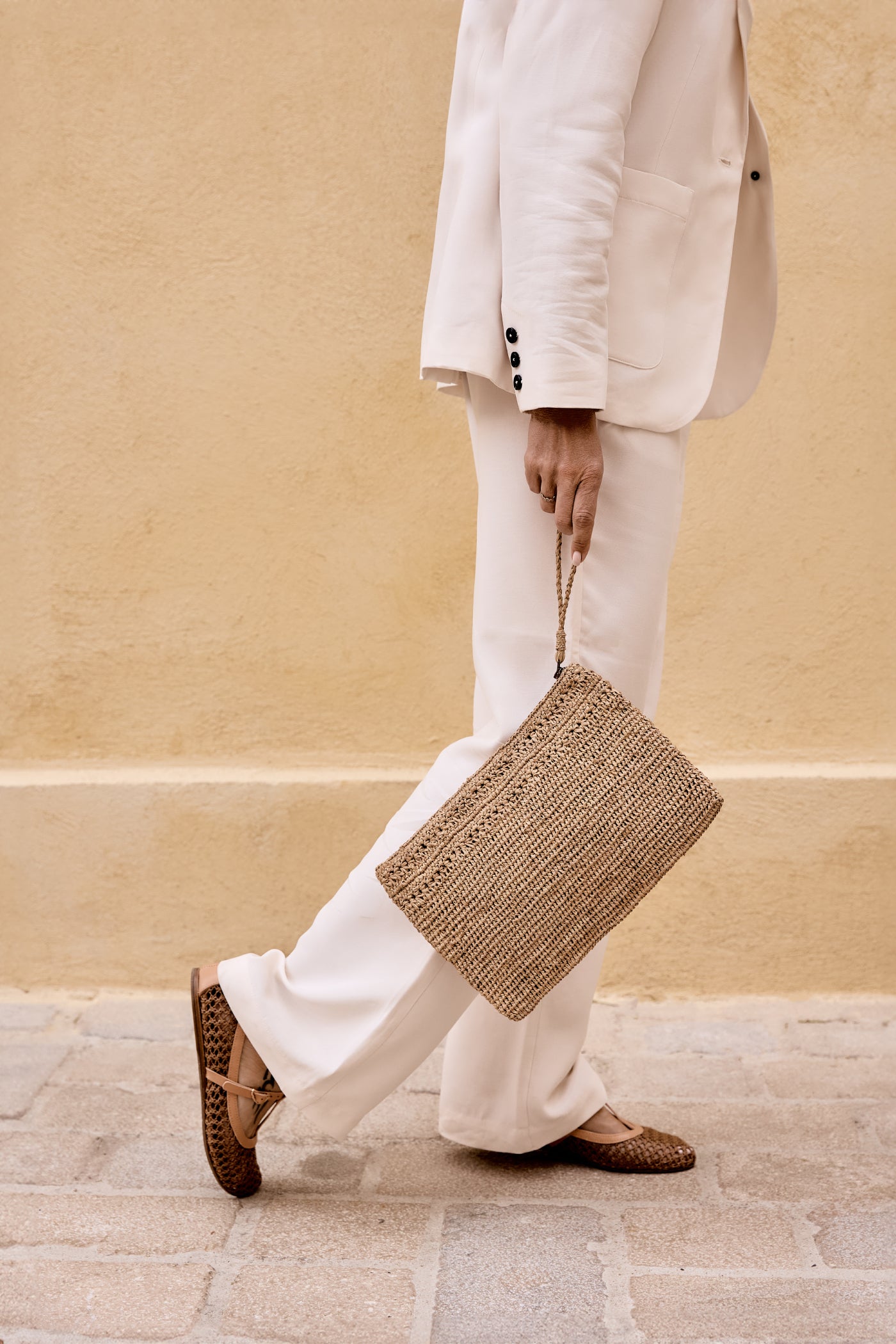@ibeliv_official
RAFFIA
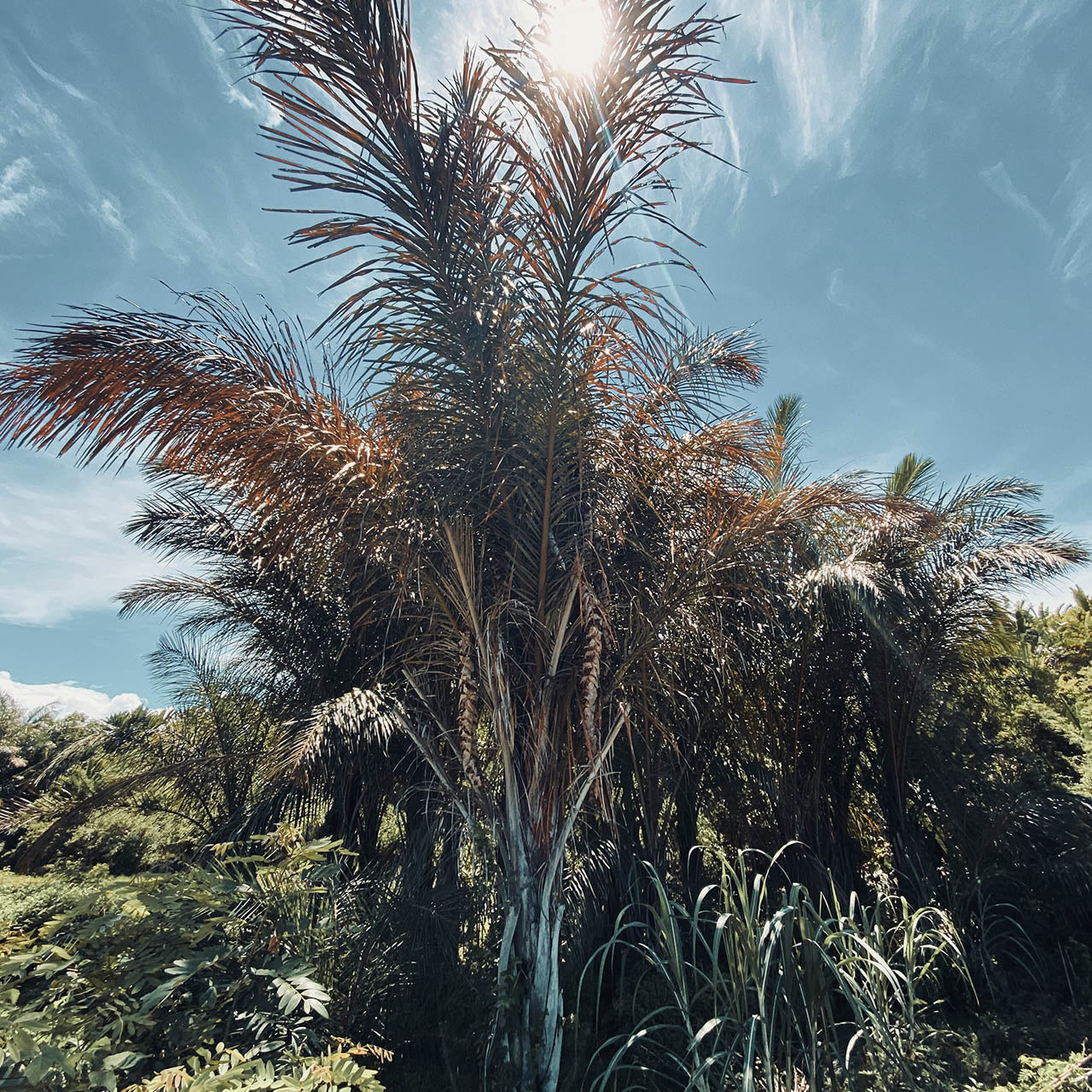
Discovering a natural treasure: Madagascar's RAFFIA
Like a jealously guarded treasure, Madagascar'sRAFFIA is hidden in the heart of the island's unspoilt nature. A veritable Eden, this original garden is home to a singular flora and fauna, an incredibly rich biodiversity favored by the country's insularity, microclimate and relief...
The trees from which natural RAFFIA is extracted yield the best fibers when they are selected from the island's most remote vegetation, access to which sometimes requires hours of walking by cart or pirogue. A treasure, we say...
A little clarification for budding gardeners and all naturalists eager to acquire new knowledge about the extraordinary species that inhabit the earth: the term RAFFIA is a word of Malagasy origin that designates both the palm tree and the fiber extracted from it.
Origin and distribution: RAFFIA 's path to IBELIV products
At IBELIV, we know that our customers are not just fashion enthusiasts. Choosing our products in natural RAFFIA , wearing our accessories in RAFFIA, also reflects our values. Those of a strong commitment to the environment, a tenacious determination to protect our planet and the plants, animals and people who inhabit it.
We're sure you have more than one question about the origin of our flagship manufacturing material, which forms the basis of all IBELIV creations. So we'd like to take you on a journey of natural RAFFIA , from its natural state to its harvesting and processing.
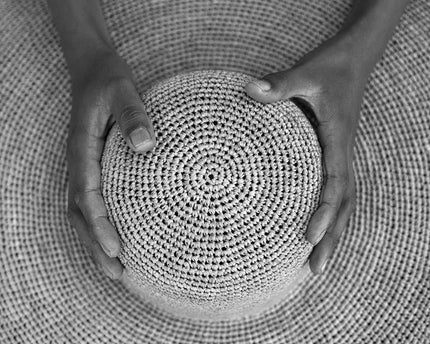
The plant behind RAFFIA : the leaves of a Madagascan palm tree
While there are different species of natural RAFFIA , the one most commonly used to make fashion and decorative items comes from Madagascar. This is the case for IBELIV products. The RAFFIA fiber hand-hooked by our craftswomen comes from the leaves of a Madagascan palm that grows naturally around waterways and is known to have the longest leaves in the plant kingdom.
Harvesting the RAFFIA used for IBELIV creations: in January, in the RAFFIA forests of Madagascar
Natural RAFFIA is harvested in wetlands, in the heart of Madagascar's RAFFIA forests. These are wild palms that flourish in swamps. A partner collector goes into the forest and climbs the tree to harvest the new branches that have not yet reached maturity. The rule is to take no more than 30% of the young shoots to ensure responsible harvesting. On each branch of leaves harvested, the collector frays the yellow RAFFIA branches.
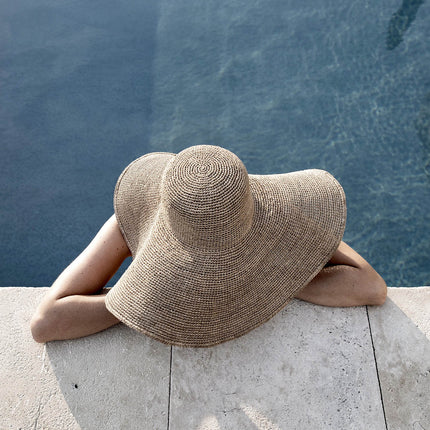
Separating and drying RAFFIA fibers: the last step before creating bags and accessories
After harvesting and fraying the natural RAFFIA leaves, the fibers are entrusted to craftswomen. They can then divide each RAFFIA fiber by 10 before drying it. The resulting natural product is then dyed and cleaned before passing into the hands of IBELIV craftsmen to create the bags, Clutches and hats.
The key benefits of natural RAFFIA
RAFFIA from Madagascar is a natural fiber of rare quality. Once extracted from the long leaves of the palm tree, it is an exceptional material in terms of flexibility, strength and color. With its unrivalled qualities, RAFFIA is not only an invitation to travel, but also an incomparable awakening of the senses. Its unique fragrance and feel are a return to nature, unspoiled and exhilarating.
And if the sound of wind in the branches that you hear when you plunge your hands into the RAFFIA fibers evaporates once the fibers have been disciplined under the hook, you can still sense their wild, ethereal nature. IBELIV creations offer you all this, magnifying RAFFIA in its purest expression.
A brief overview of traditional and contemporary uses for RAFFIA
Did you know? The majority of Malagasy craft production is linked to RAFFIA : RAFFIA for decoration, RAFFIA for fashion accessories, and even RAFFIA for the construction of natural huts. Natural RAFFIA has been a major raw material for Malagasy craftsmen from the past to the present day. To appreciate the scale of the phenomenon in this country, you need to know that there are at least 50,000 craftsmen in this sector, and that there is even a Ministry of Crafts in Madagascar!
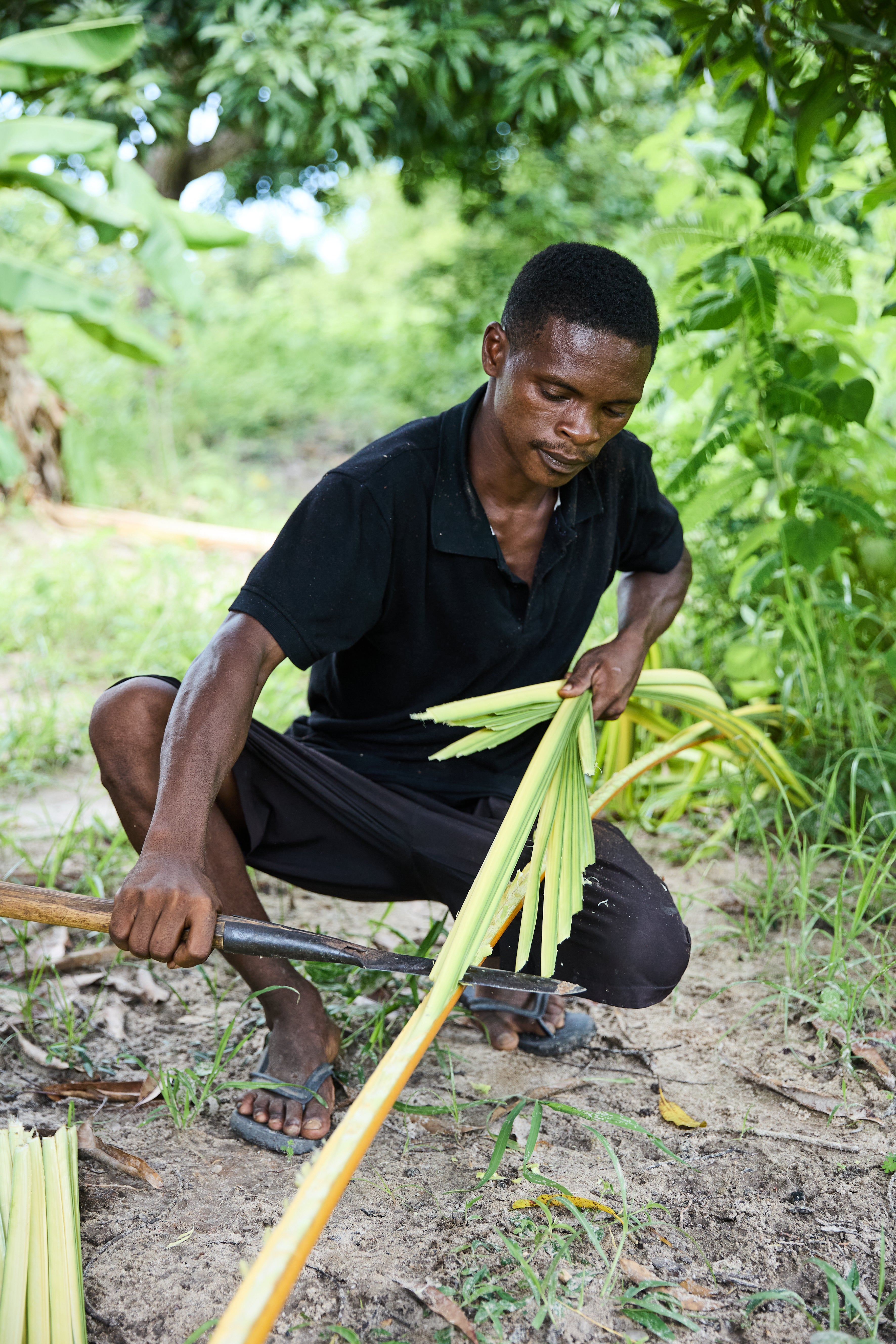
Natural RAFFIA : a soil-stabilizing plant
A natural product, RAFFIA helps stabilize soils. Unfortunately, it is one of the plants that have suffered the impact of deforestation caused by rice cultivation in recent years. Indeed, as mentioned above, natural RAFFIA is a plant that thrives in swampy areas. These natural areas tend to be replaced by rice paddies, as Malagasy farmers find the conditions necessary for this type of cultivation... But with the disappearance of RAFFIA from these areas, an entire ecosystem is endangered.
To remedy this situation, IBELIV supports RAFFIA reforestation campaigns and works daily to raise public awareness of the benefits of natural RAFFIA and the importance of protecting it. These new RAFFIA plantations and this awareness-raising work help prevent the extinction of these plants and restore the ecosystem.
The manufacture of RAFFIA IBELIV products: a creation synonymous with sustainable employment and comfortable incomes
At IBELIV, our work to protect and enhance natural resources takes into account the women and men who live on the island. Indeed, we know that rice-growing is of great importance to the Malagasy economy. Rice is a staple food, and its cultivation guarantees both food and financial security. For the farmer, therefore, the existence of the palm tree and the rice field are mutually antagonistic.
By developing the RAFFIA sector through the creation of sustainable jobs and comfortable incomes, IBELIV reconciles the economic interests of the rural population with the sustainability of this unique natural resource.
RAFFIA craftsmanship in Madagascar: ancestral know-how at the origin of a veritable fashion revolution
Far from being a passing fad, natural RAFFIA products are now timeless creations. These trendy items, once reserved for the summer season, can now be worn all year round, providing the natural, authentic touch that women are looking for in their everyday outfits. They meet the expectations of consumers looking for responsible, handmade products that respect nature and people. A green trend that encourages the use of natural resources such as RAFFIA ... As a result, the ancestral techniques of Malagasy RAFFIA crocheting have become highly sought-after skills in the fashion world.
A success that nevertheless has a few drawbacks... Natural RAFFIA from Madagascar does not yet benefit from a controlled designation of origin. As a result, many luxury goods companies are using the name " RAFFIA product" to stamp fashion items that are not really made from natural RAFFIA , but only look like RAFFIA. IBELIV stands out from these companies by offering you exclusively handmade items made from naturalRAFFIA , ethically and sustainably sourced in Madagascar.
IBELIV 's unique creations sublimate RAFFIA fibers, making them an exceptional material for noble, contemporary craftsmanship.
TO WEAR AN IBELIV IS TO ADORN YOURSELF WITH A PIECE OF NATURE, LIKE AN EXOTIC LUXURY WHEREVER YOU ARE IN THE WORLD...


